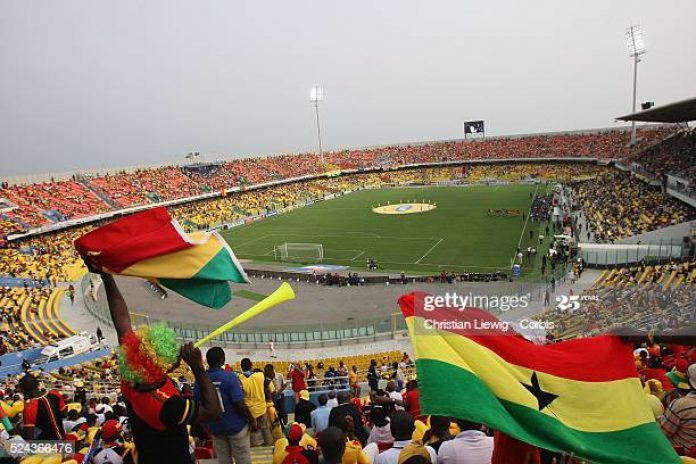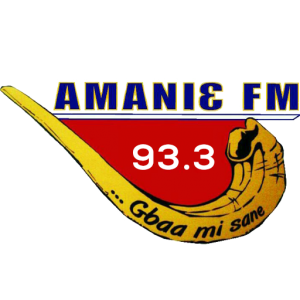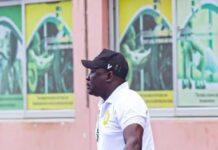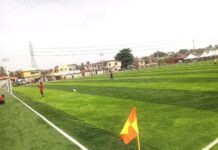
By Magnus Rex Danquah
Land Economist, Sport Business Consultant, Bid Architect & Manager for CAN 2008 and 13th African Games Ghana 2023
THE 2020 Presidential and Parliamentary Elections brought to the fore for the very first time in the 4th Republican Dispensation, the CLASH OF MANIFESTOS, where the citizenry had been engaged to discuss the two manifestos of the two main political parties. For that matter, the sport pages of the two documentations received special attention from the Sportswriters Association of Ghana (SWAG) officially and its membership individually, the various media houses – radio, television and social media and the public, especially those who participate in all sports discussion programmes.
What I have tasked myself to do is to define the tasks ahead of whoever gets the nod as the substantive Minister for Youth and Sports to direct and manage the affairs of Ghana Sport for the next four years (2021-2024).
This assignment is very critical for laying proper take-off of SPORT AS AN EMERGING INDUSTRY with the capacity to support the growth of Ghana’s economy.
What I will set myself to do within the parameters of this article is to set the AGENDA FOR GHANA SPORT for the period 2021 – 2024 term of office, highlighting all the outstanding major issues as well as those actions which are necessary to facilitate the desired take-off.
NATIONAL SPORT POLICY
One of the most recurring paradoxes of the Ministry of Youth and Sports over the last three decades or more has been the failure of the various quests or attempts to craft a National Sports Policy for the nation over the past three decades and more.
I recall efforts by Zaya Yeebo, the 2nd PNDC Secretary for Youth and Sports (1982-1983) who sought to consider all facets of sports development within a revolutionary context to the extent that there was a 3-day event held at the British Council Hall charged with evolving a Policy Directive for the Ministry. Zaya Yeebo succeeded Nii Anyetei Kwakwranya who was the PNDC Secretary for Culture and Sports (1981-1982).
How can I forget the late Ato Austin, also a PNDC Secretary for Youth and Sports (1986-1988) – his tenure witnessed the setting up of the Ben Eghan Junior Committee for Sports Development. An accomplished sportsman during his school days and an astute administrator, the late Austin’s team to deliver the requisite blueprint necessary for an accelerated change for Ghana Sport included Prof. Kwesi Yankah, current Minister of State at the Ministry of Education. The Committee submitted its very well packaged Report to the PNDC Secretary but it was relegated to the back-burner when he was reshuffled to Cape Coast and that was the end of that exercise.
I, again, recall the efforts of Hon. Kwame Saarah-Mensah (a national hockey star) during whose tenure also as PNDC Secretary for Youth and Sports (1988-1991), my agency, RICS Consult Limited (then Rex-Image Associates) started organizing the Annual Ohene Djan Lectures in memory of the first Director of the Central Organisation of Sports (COS) and also as a precursor to redefining how sports could be developed, managed and promoted as a tool for national re-engineering for development. This exercise was to evolve into providing a framework for a sports policy that will inform the activities as well as programmes of the National Sports Council as it interfaced with the various Federations and Associations through its Regional Councils.
It would be smack of lack of due recognition if I do not state the efforts of Hon. E. T. Mensah, ex-MP, who was the NDC Minister for Youth and Sports (1993-2001). E. T. as he is affectionately called and known, also set up a number of committees, including one that worked on the WINNEBA DECLARATION to change the face of Ghana Football to launch it on the path of professionalism. He was also the Minister for Youth and Sports to have produced a 39-page NATIONAL SPORTS POLICY document launched in April 1994 under the Supreme Military Council Decree (SMCD) 54 and the Sports Regulations Legislative Instrument (LI) 1088 of 1976.
Obviously both instruments, SMCD 54 and Sports Regulations LI 1088 are moot and of no consequence with the passage of the Sports Act, 2016 (Act 934), which only seeks to establish the National Sports Authority (NSA) with its Regional Offices plus District Sports Desks set within the District Assemblies setting and leaving out some critical issues which should have been legislated by now.
The Ministry under Hon. Isaac Kwame Asiamah, MP set up and inaugurated a National Sports Review Committee, under the Chairmanship of Hon. Curtis Perry Kwabla Okudzeto, Deputy Minister for Youth and Sports. Unfortunately, it was more for showmanship as the Committee was not resourced to execute its terms of reference (TOR) to the extent a member provided refreshments for all meetings as well as some honorarium for a resource person to provide a draft policy framework for the members to input for discussions.
What is important is to recognize and appreciate that the derivable benefits from the formal launching of a Cabinet-approved National Sport Policy this year, 2021 will inure to the goodwill of the Government, the ruling party and the Ministry as they seek to settle the ‘CLASH OF THE MANIFESTOS’ debate of the last 2020 general elections, where both leading parties showcased almost about the same issues in their 2020 Manifestos.
For some strange reason of pride, every Minister at the Ministry has always sought to work at appending his name and signature to such monumental documents, especially a National Sport Policy document, to keep wondering why since the inauguration of the 4th Republican dispensation, all attempts to produce such draft for public engagement and discourse have failed for whatever strange reasons.
Guess, the beauty however of the period was the enacting of the Sports Act, 2016 (Act 934) by the Parliament within the injury time of their sittings to replace the SMCD 54 (1976), including a Retreat Session at the Accra City Hotel to consider the last few salient issues, which the Select Committee on Culture, Youth and Sports thought they added further consultations with specific individuals to bring closure to the exercise as well as meet the timelines.
The Sports Act 934 states inter alia that “it is to be recognized that despite the repeal of the SMCD 54, regulations, by-laws, notices, orders, directions, appointments or any other act lawfully made or done under the repealed enactment and in force immediately before the commencement of this Act shall be considered to have been made or done under this Act and shall continue to have effect until reviewed, cancelled or terminated.”
This places a certain state of urgency on the new Minister for Youth and Sports to begin to actualize those steps leading to the passage of set Regulations, whereby legislative instruments would be passed to deal all aspects of sports administration, promotion and development to strengthen the base for proper take-off for sports as an emerging industry.
This also sets the tone for the operationalization of the kind of future we wish to establish, administer and promote for Ghana Sport, starting with a major stakeholders engagement to discuss and adopt the final draft NATIONAL SPORT POLICY by the end of the first quarter of this year, March 2021.
SUSTAINABLE NATIONAL SPORT FUND
The journey of our several attempts to re-engineer the sustainable financing of sports in Ghana predates the 1st, 2nd and 3rd Republican dispensations, especially as they posed real and seeming threats to Ghana’s rise to shine as the ‘BLACK STAR OF AFRICA & WORLD’ at all international sporting platforms, including the Ghana-Nigeria Friendship, Olympic and Commonwealth (formerly Empire) Games post – Independence to showcase the diversity of our collective sporting prowess in such disciplines as athletics, boxing and football.
During the tenure of the leadership of the late Osagyefo Dr. Kwame Nkrumah, Ghana’s first President for who he was, an athlete himself during his days at Achimota School, his government sought to weaponize Ghana’s participation in all international sporting events; and therefore not efforts were spared to provide finance for sports.
Merging all private and public institutions or sporting associations or federations under one juggernaut, the Central Organisation of Sports (COS) and led by the late ubiquitous Ohene Djan with direct, unfettered access to Osagyefo, the President, funding of sports in all areas, including the upgrading of facilities, formation of the Academicals, scholarships for sportsmen and women did not seem to be a problem.
However, the issues of funding, in any form, have not ceased to become the bane of our nation’s sports development paradigm since the advent of the 4th Republican dispensation, with various succeeding Ministers of Youth and Sports exploring various ways to source new ways of appropriating funds for sports.
Hon. E. T. Mensah, during his tenure tried two failed attempts with the SPORTS ENDOWMENT FUND, which was launched at the then Continental Hotel (now Golden Tulip Hotel) amidst fanfare and pageantry and under the Chairmanship of Sir Sam Jonah of then AngloGoldAshanti Ghana Limited; and then the SPORTS DEVELOPMENT FUND, which account was used by the Ministry for sponsorship accruals from the 11th Women’s AFCON 2018. Unfortunately, both laudable attempts failed woefully for the simple reason of management of the both initiatives: control and management, especially disbursements of the funds by the Ministry as against the setting up of an independent body setup specifically to manage same like the GETFund. He, again, considered renaming an existing but amorphous Sportsmen’s Pension Scheme into a Sports Aid Foundation to provide for both present and retired sportsmen and women as the pension scheme was more in name than substance.
In the early days of the late Hon. Osei Kwaku as the Minister for Youth and Sports, he set up the Hon. Joe Aggrey Committee – he was the Deputy Minister for Youth and Sports and former President of the Sportswriters Association of Ghana (SWAG) – to provide a blueprint for Sports Development in Ghana.
Out of the work of the Committee, for which I was a Consultant, a 70-page “PLAN FOR NATIONAL SPORT DEVELOPMENT IN GHANA: Framework For A New Direction for Administration, Organisation, Promotion And Funding” document was submitted to the Ministry.
Truth be told, it was through these engagements that the decision for Ghana to bid for the rights host and organize the African Cup of Nations (CAN) 2008 was mooted from the instrumentality of the late Hon. Osei Kwaku (then MP for Asokwa Constituency, Kumasi), when my agency, RICS Consult Limited was engaged to work on the Bid; hence the LOC Conference Room was named after him.
According to the Plan the objectives of the envisaged National Sport Fund included working towards a self-sustaining structure for fund mobilization, backed by an Act of Parliament to support all aspects of sport development, promotion as well as provide for construction and maintenance of infrastructure.
I also recall the series of engagements led by Hon. Mahama Ayariga, MP and then Minister for Youth and Sports hosted a national conference on sport financing at the Movenpick Hotel in 2014 with an invitation extended to John Barnes of Liverpool FC, UK Premier League as one of the speakers.
Indeed, we have progressed from this narrative as in 2018, Hon. Isaac Kwame Asiamah, MP and Minister for Youth and Sports, set up a Committee under the Chairmanship of his Deputy Minister, Hon. Pius Enam Hadzide to work towards the establishment of a National Sport Fund. The 12-member Committee met a number of times and scheduled a national stakeholders’ consultative forum at the Accra International Conference Centre (AICC) with representation from the Ghana Statistical Service (GSS) and the Attorney-General’s Department. The 1-day forum was carried live on GTV SPORTS+ network.
Thereafter, a sportbusiness expert was engaged to provide consultancy services for a work plan for the final stages of the approval process, which included consultations with the Ministry of Finance – to clear grey areas relating to sources of public funds as contribution to the Fund, Ministry of Communications and the Gaming Commission of Ghana (GCG).
I am reliably informed that the initial Cabinet approval has been secured with a pledge of GH₵5,000,000.00 (five million Ghana Cedis) as seed money for the landmark establishment of a SUSTAINABLE NATIONAL SPORT FUND for Ghana Sport.
What is at issue now and which delayed the formal launch last year before the 2020 General Elections is the age-long management structure paradox – independent and sustainable as the GETFund or tied to the apron strings of the Ministry of Youth and Sports as the Road Fund without the avenues for sustainable revenue generation. The second option should not be acceptable for the Ministry will also see it as a supplementary source of income for various activities, most times unplanned and unbudgeted for.
If the lessons of the failures of the Sports Endowment Fund and the Sports Development Fund of the same Ministry should guide anybody for the way forward then I would definitely recommend a Legislative Instrument or an Act, which will give the Fund all the independence it will require to succeed.
It is imperative that this exercise is completed by the end of the first quarter of the year, March, 2021.
The next issues that the second instalment of the MATTERS ARISING from the AGENDA FOR GHANA SPORT (2021 – 2024) will include looking at the Sports Act 934 vis-à-vis the proper role of the National Sports Authority (NSA) in the overall scheme of sport development in the country; justifications or otherwise of the provision of new sports facilities and the management of the existing major stadia and their sustainability.
The third instalment will also look at the nice initiative of the Ghana Football Association (GFA) to compute Football’s contribution to the Gross Domestic Products – a laudable idea but I will advance reasons why they should join forces with the MOYS, the Ghana Olympic Committee (GOC) and all national federations to deliver this exercise which will reposition Ghana Sport as an emerging industry. I will also look at a proposed 10 – Year Sport Renaissance Plan (2021-2030) and why it is necessary for it to be considered a non-partisan project to relaunch Ghana Sport.
The fourth and final instalment would be the best for the issues it will consider.










